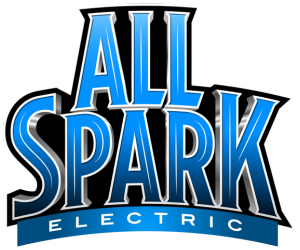When storm season hits Fort Worth, TX, many homeowners rely on backup power to keep the lights on, the refrigerator cold, and essential devices running. But here’s the question: can a generator get wet? Whether you’ve invested in a portable generator or a permanent standby unit, understanding how moisture affects your generator is critical for both safety and performance. At All Spark Electric, we want homeowners to know exactly what to do—and what not to do—when operating a generator in wet conditions.
Can a Generator Get Wet Without Damage?
The short answer: no, a generator should not get wet. Generators are designed to produce electricity, and water plus electricity is a dangerous combination. Rain, snow, and even heavy humidity can cause:
-
Electrocution risks if water makes contact with electrical components.
-
Short circuits that can damage the generator’s wiring and internal systems.
-
Permanent equipment failure, leaving you without backup power when you need it most.
-
Fire hazards, if wet connections spark or overload.
Even a light drizzle can create unsafe conditions, which is why it’s important to protect your generator anytime it’s in use outdoors.
Why Keeping Generators Dry Matters
Generators work by converting fuel—gas, diesel, or propane—into electricity. The alternator inside produces power that flows through outlets or a transfer switch to your home. If moisture seeps into the outlets, wiring, or control panel, the electricity can arc in unexpected ways. This is dangerous not just for the equipment but also for anyone nearby.
Think of it like this: water doesn’t just “turn off” electricity—it redirects it. That’s why you’ll often see strict safety warnings on every generator manual advising against rain exposure.
How to Safely Use a Generator Outdoors
Since generators must be used outside (to avoid deadly carbon monoxide buildup indoors), homeowners face a challenge during storms: how do you run the generator safely without letting it get wet? Here are some safety tips:
-
Never run a generator in the rain without cover. Always place it under a protective structure.
-
Use a generator tent or cover. These are designed with weatherproof materials that allow ventilation while keeping moisture away.
-
Elevate the generator. Place it on a dry surface, not directly on wet ground or grass.
-
Keep it ventilated. The cover should not trap exhaust—carbon monoxide must safely vent away from the home.
-
Maintain a safe distance. Always run the generator at least 20 feet from your house, garage, or windows.
Can a Generator Get Wet If Covered with a Tarp?
Some homeowners think throwing a tarp over the generator will keep it safe, but that’s not the best approach. A tarp can trap heat, restrict airflow, and blow around in the wind, which may actually expose the generator to more water. If you must use a tarp, build a frame around the generator so the tarp forms a roof and walls without touching the machine directly.
The better option is a generator canopy or enclosure, which is specifically designed to keep water out while allowing heat and fumes to escape.
What to Do If Your Generator Gets Wet
Accidents happen. If your generator does get wet:
-
Turn it off immediately and disconnect all cords.
-
Do not touch it with bare hands if it’s still running or plugged in. Use insulated gloves if available.
-
Move it to a dry area and allow it to air out completely.
-
Do not restart until inspected. Have a licensed electrician, like the team at All Spark Electric, check it for damage before using it again.
Trying to restart a wet generator can cause irreversible electrical damage or serious injury.
Preventing Long-Term Moisture Damage
Even when you’re not actively running it, a generator should always be stored in a dry, secure space. Moisture from rain, humidity, or even morning dew can corrode metal parts and damage wiring over time. Here are some preventative measures:
-
Store your generator in a shed or garage when not in use.
-
Run it every month for a few minutes to keep it in working condition.
-
Invest in a fitted, breathable cover for long-term storage.
-
Schedule professional maintenance once a year to check wiring, fuel systems, and electrical safety.
Why Generator Safety Matters in Fort Worth
North Texas is no stranger to severe weather—whether it’s thunderstorms, high winds, or even the occasional ice storm. Generators provide a lifeline during power outages, but only if used safely. At All Spark Electric, we’ve helped countless Fort Worth homeowners install transfer switches, maintain standby generators, and troubleshoot portable units after storm damage.
We’ve seen firsthand what happens when generators are exposed to water—burned-out equipment, costly repairs, and dangerous situations. That’s why our advice is always the same: never let your generator get wet, and always operate it with safety as the top priority.
Final Thoughts
So, can a generator get wet? The answer is no—and for good reason. Water and electricity don’t mix, and even a small amount of moisture can put your family and your equipment at risk. By using a proper cover, keeping the unit dry, and calling in professionals when needed, you can make sure your generator is ready to power your home safely during the next outage.
If you need generator installation, inspection, or repair in Fort Worth, TX, trust All Spark Electric. Our licensed electricians are here to keep your backup power systems safe, reliable, and ready when you need them most. Call today to schedule service and protect your home before the next storm hits.


